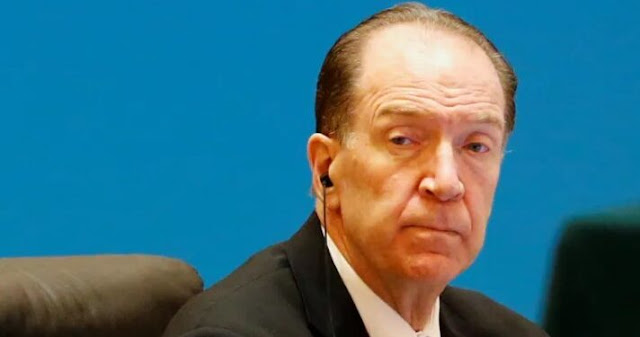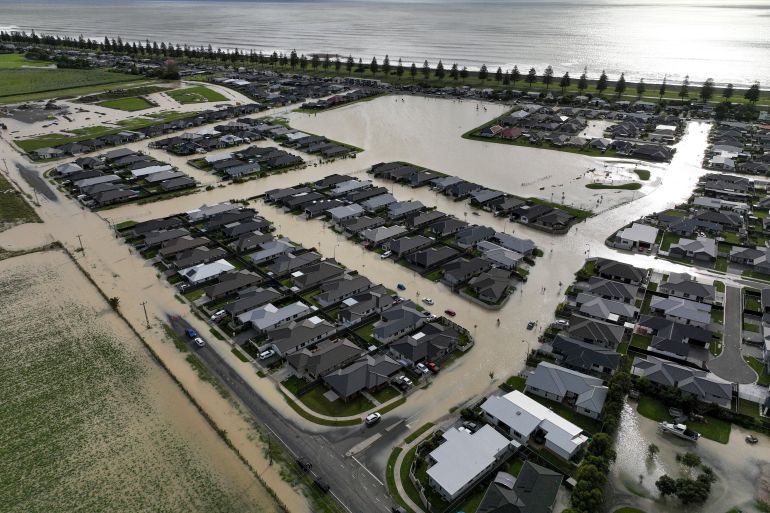Ago-Iwoye, Nigeria – On June 8, 2022, millions of Nigerians were glued to their phones, televisions, and other devices, watching the presidential primaries of the ruling All Progressives Congress (APC).
Then something happened. Uju Ken Ohanenye, the only woman among the 23 aspirants, withdrew from the contest in favour of the eventual winner and national leader of the party, Bola Tinubu.
“I have decided to step aside for the lifesaver who is Asiwaju Bola Ahmed Tinubu,” the lawyer and entrepreneur who had previously told journalists that “the touch of a woman is lacking in the governance of this country”, said on national television.
For some Nigerians, it was a step back for gender equality in the country’s politics but also a timely reminder of the many hurdles women face in attaining leadership roles in this vast West African country.
“[Ohanenye] might have believed she was not going to win because of the financial and political limitations she would have to surpass,” said Antoinette Lecky, Lagos-based media personality and former projects lead at ElectHER, a nonprofit focused on getting more women into political leadership. “[But] it gave her a chance to publicise herself as a lot of people did not know who she was at the time.”
Half of Nigeria’s estimated 210 million people are women. But only one woman has ever occupied any of the top four positions in Nigerian governance – a five-month stint as speaker in 2007 – since the country’s independence from Britain in 1960. Only five percent of Nigeria’s federal lawmakers are women, one of the lowest representation rates globally.
And no woman has ever been elected governor.
On February 25, Nigeria’s presidential election will be held, and only one of the 18 candidates is female – Ojei Chichi of the Allied People’s Movement (APM). In the governorship races, there is only one woman across the 36 states – the APC’s Aisha Binani in Adamawa state.
Civil society leaders and other experts say women’s political participation in Nigeria is below global standards.
“There is … something sad about the idea that we haven’t had a woman governor in this country,” novelist Chimamanda Adichie said at a conference in January. “It’s wonderful that we are celebrating the possibility [of having one soon] but why has it taken so long?”
As the presidential and parliamentary elections at federal and state levels hold this February and March, only 1,524 – less than a 10th of the 15,336 candidates in the forthcoming – are women, according to data from Lagos-based geopolitical risk advisory consultancy SBM Intelligence.
“Over the years, I’ve witnessed a rise in the number of women serving in elected and appointed political positions, the world over. But that is not the case in Nigeria,” Leena Hoffmann, associate fellow, Africa Programme at London-based think tank Chatham House. “Cultural and societal beliefs have contributed to the poor representation of women in Nigerian politics, especially in Northern Nigeria.”
An “ingrained patriarchal structure” in Nigeria’s political landscape has led to “long-lasting layered institutionalised effects”, Lecky told Al Jazeera.
“They’ve told us that women are not supposed to run for political offices so we have women who won’t dream of it. We are taught to be submissive and modest,” she said.
Experts say a motley of factors, ranging from cultural and financial hindrances to violence against women, have severely limited the ability of women to occupy many offices in the political space.
In November, unknown assailants killed a female political leader in the northwest state of Kaduna. It was the ninth incident of violence against politically exposed women or women affiliated with politicians since the 2019 elections.
In a research conducted by Lagos-based Stand to End Rape (STER) between October 2021 and April 2022, about a fifth of the respondents said they often have to trade sexual favours as active and direct participants in the political space.
“Elections in Nigeria are monetised and transactional, and women are already socially disadvantaged considering that in Nigeria, the fastest way to be rich is to be in government,” Ayisha Osori, former head of the Open Society Initiative for West Africa and author of Love Does Not Win Elections.
“If women are not in politics then they cannot raise money and if they cannot raise money, then they cannot be in politics,” Osori, who previously ran for federal parliament, added.
A number of organisations like OSIWA, ElectHER and others are helping women get into politics through fundraising and supporting female candidates running for office by creating awareness and security.
The Agender35, an ElectHER initiative, uses documentaries to tell stories of political campaigns of women. Another of its programmes is a partnership with the National Assembly to teach young women about the business of being in parliament.
On its part, STER has partnered with Kasala, an emergency alert and tracking app, to help women seek emergency support services.
But there are still calls for more to be done as the leading parties are yet to hand major tickets to women in what remains a conservative society. Some suggest the drafting gender-inclusive policies in parliament and the political parties – and for women to be part of drafting these policies.
In March 2022, as Nigeria’s lower house of parliament considered proposals for the amendment of the constitution, it discarded three proposed bills favouring women; one stipulated the assignment of 35 percent of legislative seats to women, as well as 35 percent of political party leadership, for women.
Within hours of women-led protests in Lagos and at least three other states the week after parliament announced the rejection, it was forced to rescind the decision.
The bills are yet to be decided upon but activists say that even if they are passed, there is so much work to do to bring Nigerian women up to par.
“We should all canvas for gender inclusion so everyone can have an equal and fair chance at representation,” said Lecky. “We need more communal change on how individuals feel about women’s participation.”















